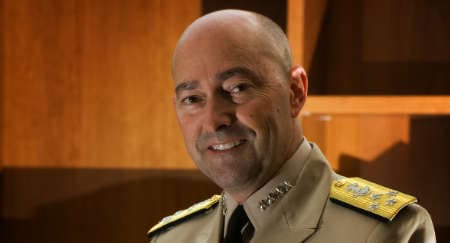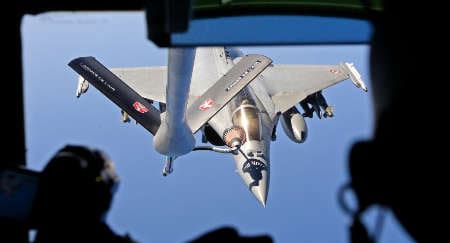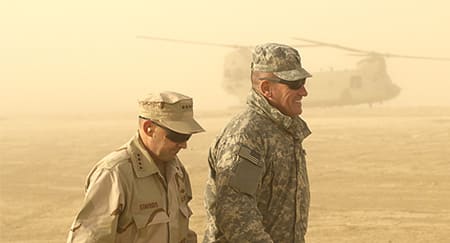NATO’s Supreme Allied Commander Europe, Admiral James Stavridis, has been part of several key developments for the Alliance. These include when the Alliance set out its first new mission statement - or Strategic Concept – for 10 years. Here, he outlines how the ideas have been put into action.
NATO is experiencing a period of tremendous change. That is both in the broad historical context and in defining moments within the Alliance. The 2012 Summit in Chicago will allow our nations to take stock of our progress and shape the Alliance’s future to ensure the right military capabilities for the 21st century.
The new Strategic Concept and Lisbon Summit Declaration called for strengthening and modernising NATO’s military capabilities, while continuing to promote international stability.
The key challenge facing us today is to maintain our ability to face threats as they emerge and evolve
Over the past year and a half, we have executed several major operations, demonstrating an impressive array of Alliance capabilities. Today, some 130,000 NATO personnel are operating in Afghanistan. The Balkans continue to have a “safe and secure environment” due in part to the presence of 6,000 NATO troops. Piracy attack success rates have been cut in half compared with previous years. And we continue to support ‘smart defence’ via missile defence, Baltic air policing, and other operational initiatives. All of this reflects our work bringing the strategic concept to life.
The ISAF mission in Afghanistan remains our most significant operational commitment. Last year we began to transition security to Afghan authority and continue to train thousands of police and military personnel. Transition continues to rely upon increased Afghan National Security Force (ANSF) capabilities.
Although challenges remain and continued commitment by the international community will be required, we have seen tremendous advances.
Elsewhere, the Arab Spring and rapid escalation of violence against innocent civilians in Libya took many by surprise.
Our goal is to prevent crisis through "horizon scanning" for emerging threats
NATO Allies responded quickly. They led an unprecedented coalition of contributors from March 24 to October 31, 2011, enforcing an arms embargo by air and sea, maintaining a no-fly-zone, and undertaking specific operations to protect civilians and civilian populated areas. In all, 14 NATO members and four partner countries provided naval and air forces for NATO’s three missions. The long-standing political-military relationships developed through Alliance operations, exercises, and partnerships helped the quick, coordinated start of operations with unprecedented speed.
This proved the value of the so-called "comprehensive approach". We saw civilian advisors coordinate with nongovernmental organisations and other international actors in crisis management. And this enabled us to better develop this capability as we restructure.
But prevention is better than cure. Our goal is to prevent crisis through "horizon scanning" for emerging threats. Our Comprehensive Crisis Management Centre (CCOMC) structure at SHAPE is part of how we plan to do so. Its dedicated integration approach of political, civilian, international and military capabilities will also enhance cooperative security in areas including missile defence and cyber defence.
The strategic environment continues to evolve at a rapid pace. A lot has happened since our last Summit and the Alliance has been busy. Global operations and engagement prove NATO’s continued relevance and increased effectiveness as a mature Alliance. NATO is working as it was designed to do, with our allies and partners sharing the burdens and responsibilities of operational missions.
But a key challenge facing us today is to maintain our ability to face threats as they emerge and evolve – often unpredictably – with a smarter and more precise application of our instruments. The Summit in Chicago is an opportunity to progress towards this end. But also to further develop and operationalise the concepts of the strategic concept. In doing so, NATO will remain the cornerstone of collective defence and a force for good in the world.



